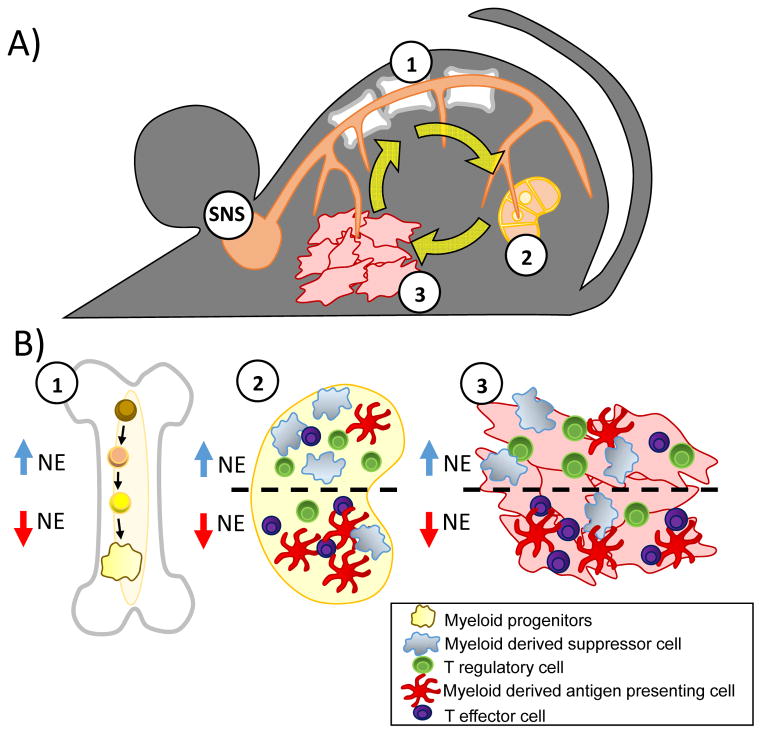Figure 2.
Chronic stress-associated norepinephrine systemically alters immune responses in the tumor bearing mouse. A: Stress activates the sympathetic nervous system (SN) to produce norepinephrine (NE). NE potentially targets three major organs of interest in cancer research: (1) primary lymphoid tissue - bone marrow, (2) secondary/peripheral lymphoid tissues - lymph nodes, spleen, and (3) the tumor microenvironment. B: Potential cellular targets at each of these sites are highlighted: (1) hematopoietic progenitor cells in the bone marrow, (2) myeloid cells and lymphocytes in peripheral lymphoid tissues, (3) tumor cells as well as tumor-associated myeloid cells and lymphocytes. With increasing NE, the balance of suppressive to effector cells within the tumor, spleen, and lymph nodes shifts toward pro-tumorigenic populations. NE signaling during both myeloid and lymphoid development and upon fully differentiated cells likely contributes to this altered immune environment.

